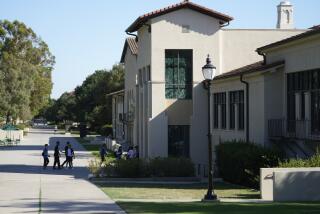Occidental Plans Restructuring, Will Slash Dividend
- Share via
Occidental Petroleum Corp., under new leadership after the death last month of its longtime chairman, Armand Hammer, today announced a $2-billion restructuring that includes a sharp cut in its quarterly dividend.
The company also said it will reduce debt by $3 billion through the sale of assets.
Occidental has a total debt load of about $8.8 billion.
Occidental said it will move to sell those assets that “no longer fit with the company’s business strategy.” It said it may also be necessary to sell certain assets of its core businesses.
The company said the restructuring will mean a one-time, $2-billion after-tax charge against its earnings.
Occidental, a diversified conglomerate with interests ranging from petroleum and chemicals to meat processing, was tied closely to Hammer’s highly personal style of management. Hammer died Dec. 10 and was succeeded by Ray Irani.
Industry analysts had expected Irani to announce some restructuring moves or asset sales and possibly a cut in the company’s generous dividend, which was considered sacrosanct under Hammer.
Occidental said one of the major assets that is a candidate for sale is the company’s 51% stake in meat processor IBP Inc., valued at $800 million to $900 million.
Los Angeles-based Occidental said it will slash its quarterly dividend to 25 cents per share from 62.5 cents. The company has paid a $2.50-a-share annual dividend since 1982, giving an annual yield of more than 14% on Friday’s closing stock price of $17.375.
The dividend has cost Occidental about $735 million annually.
In a statement, Irani said the company plans to concentrate its efforts in the oil and chemical businesses.
Occidental said it will “exit a number of unprofitable businesses,” including energy ventures in China and the Soviet Union, real estate development and film production.
Analysts have long said Occidental should restructure its operations in order to revive its stock price.
“It’s been one of the worst-acting energy stocks over the past decade,” Barry Sahgal of Ladenburg, Thalmann & Co., said last week.
The stock traded at $22.50 shortly after Hammer’s death and has traded as high as $30 in the last year.
Analysts have characterized Irani--who has run the company’s day-to-day operations for six years--as a solid, pragmatic manager likely to take the company back to its roots in oil and gas.
More to Read
Inside the business of entertainment
The Wide Shot brings you news, analysis and insights on everything from streaming wars to production — and what it all means for the future.
You may occasionally receive promotional content from the Los Angeles Times.










